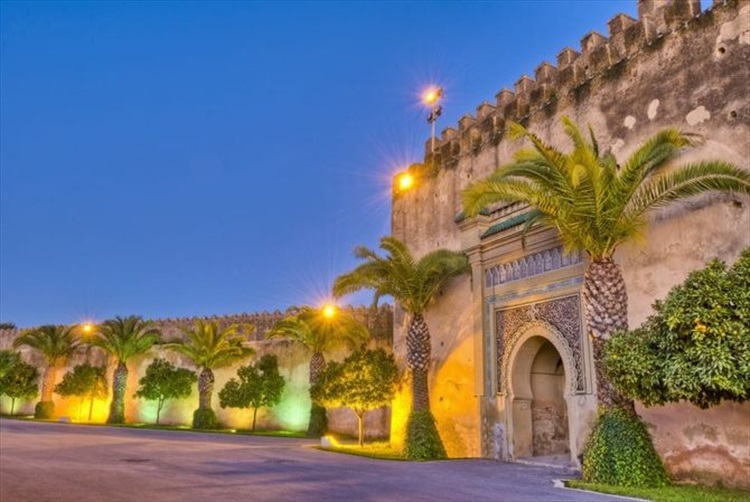Meknes

Meknès city has a strategic location on the highland plateau of north-central Morocco between Rabat and Fes, which makes it a passage to many neighboring historical cities, monuments and landscapes. The climate is very nice. Spring and summer are favorite seasons for visitors since they display the most charming weather which paves the way for local festivals promoting the diversity of Meknès culture. The name of Meknès is derived from Miknasa, an Amazigh tribe. Meknès means the head of the tribe. The city recorded a population of 632,079 in the 2014 Moroccan census, it is the sixth largest city by population in the kingdom.
This Northern Moroccan city has a fascinating story and an impressive heritage. The Almoravids founded the city in the 11th century, first a military city, then the capital of the Kingdom under the reign of Alaouite Moulay Ismail. He turned Meknès into a great, wealthy and prosperous city. During French presence in Morocco, Meknès was even called “Little Paris” or “Moroccan Versailles”. Today, and since 1996, the entire city of Meknès is on UNESCO World Heritage List.
Meknès boasts many architectural treasures, historical sites and hosts each year one of Morocco's most important events: the Fantasia Festival. Nicknamed “City of a Hundred Minarets”, Meknès is famous for its beautiful mosques such as the 11th century “Grand Mosque” but also for its gigantic fortifications, doors, Ksar Mansour palace, Agdal reservoir, Royal stables, Cara subterranean prison, Dar Jamai Museum or the Mausoleum of Moulay Ismail. The city of Meknès is also not far from the Roman ruins of Volubilis, another major Moroccan historic site.
Meknès is known for its abundant water resources due to its location near the middle Atlas that is considered the biggest tank of water in Morocco. In addition to the richness and fertility of its lands. Such geographical qualities have made it an attractive investment, namely in the agriculture sector.
Meknès is an agricultural city par excellence. The plantations of olive trees are one of its characteristics as well as its olive oil. The large rich fields of grapes are highly remarkable in Meknès and most of them are exported to Europe thanks to their good quality.
Such geographical advantages make Meknès qualified to host the international exhibition of agriculture. The latter covers 100,000 square meters and welcomes professionals and exhibitors from all over the globe. The rationale is to showcase the latest innovations that may lead to improving the agricultural field locally and globally.
